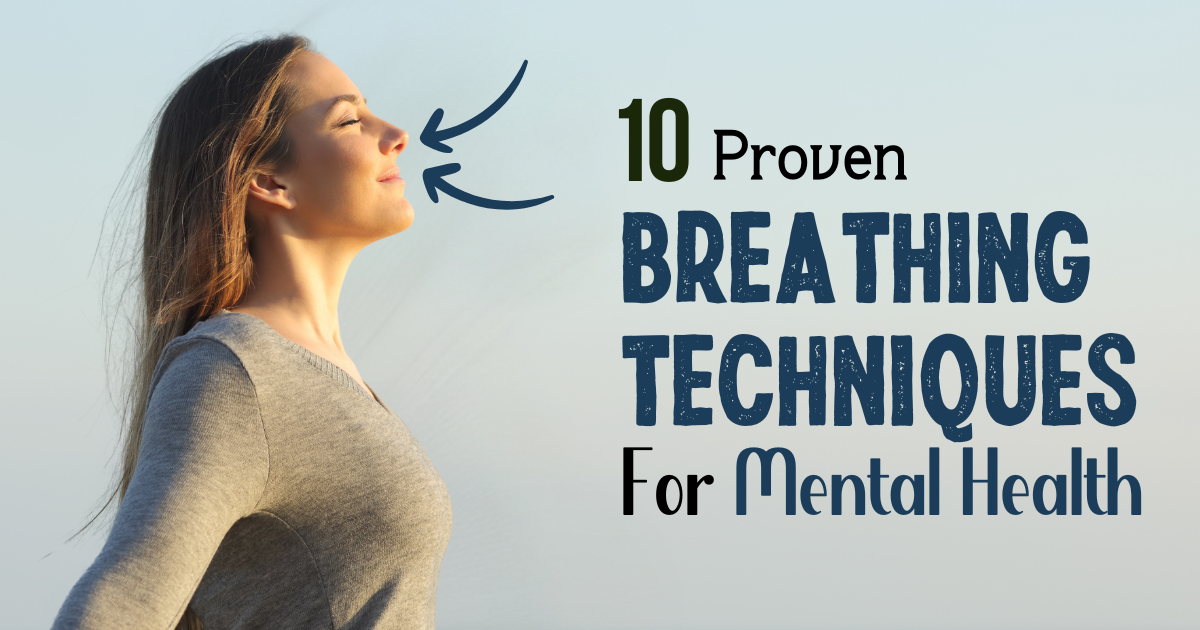In the fast and stressful world we live in, finding effete ways to manage and palliate mental tension and stress is crucial. One powerful tool available at ease are breathing exercises. Recent studies recommend certain breathing exercises for mental health benefits that easily fit in one’s daily timetable for relaxation, focus and inner wellness.
1. Deep Diaphragmatic Breathing
Deep diaphragmatic breathing involves inhaling deeply through the nose so that the diaphragm expands while exhaling slowly through pursed lips. The exercise attributes more time during exhale than inhale stimulates the relaxation response in the body, thus reducing stress and inducing calmness.
2. Box Breathing (4-4-4-4)
Consider box breathing which has a 4-4-4-4 pattern as it is simple to embrace. Inhale, hold, exhale, and then maintain empty lung for four counts each. This rhythmic approach promotes balance of the autonomic nervous system leading to equilibrium.
3. Alternate Nostril Breathing (Nadi Shodhana)
You could explore ancient alternate nostril breathing known as Nadi Shodhana. Breathe in through one nostril, close it with your finger, open another nostril, and repeat. This technique helps concentration and brings harmony into channels of energy.
4. 4-7-8 Breathing
Include 4-7-8 breathing in your regimen today. Breathe in for 4 seconds, hold your breath for 7 seconds while releasing air through pursed lips audibly for about 8 seconds. Try this to relax deeply assisting anxiety conditions.
5. Ujjayi Breathing (Ocean Breath)
Ujjayi breathing through nose creates gentle sound akin to ocean waves crashing on shoreline. This type of exercise is incorporated in most yoga practices to encourage presence and focus.
6. Resonant Breathing (Coherent Breathing)
Start resonant breathing by inhaling and exhaling for a count of 6 each. Let each breath be smooth and even, as you synchronize it with your heart rhythm to cause coherence and aid in stress reduction.
7. Belly Breathing
Integrate belly breathing into your day. Take deep breaths that allow the stomach to rise and then breathe out completely drawing the navel back towards the spine. This technique strengthens the diaphragm, promotes relaxation and reduces tightness.
8. Pursed Lip Breathing
You should master pursed lip breathing by inhaling through nose and exhaling slowly through pursed lips imitating the blowing out of a candle. It betters lung functions by preventing shortness of breath, reduces anxiety levels, and induces relaxation.
9. Body Scan Meditation
Inhale while focusing on a body part, then exhale while releasing tension straight away from the focused-on part in body scan meditation. Throughout the process, systematically repeat the process through your entire body system thereby enhancing relaxation and mindfulness.
10. Sama Vritti (Equal Breathing)
Use Sama Vritti to cultivate a peace of mind. Practice inhaling and exhaling for an equal length or period of time in seconds or beats per minute respectively. This approach ensures stability of thoughts, concentration boosting, and tranquility of mind.
As such integrating these breathing exercises for mental health benefits might amount to potent anti-stress remedies that promote a clear mind, psychological resilience, and general health. Devoting a few moments everyday to harness your breathing habits can have tremendous effects on mental health, fulfillment, and life balance.




























